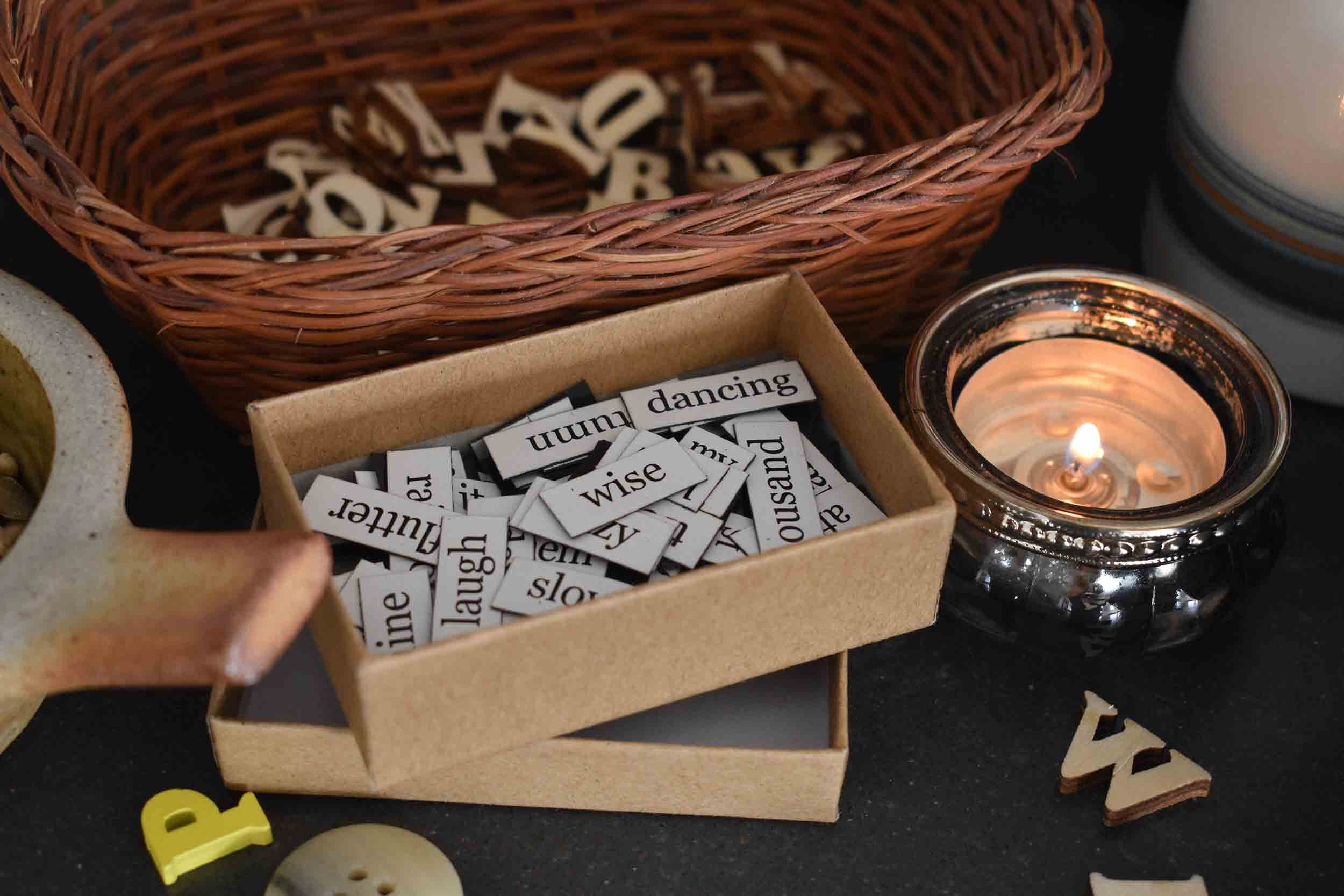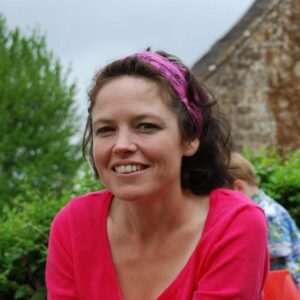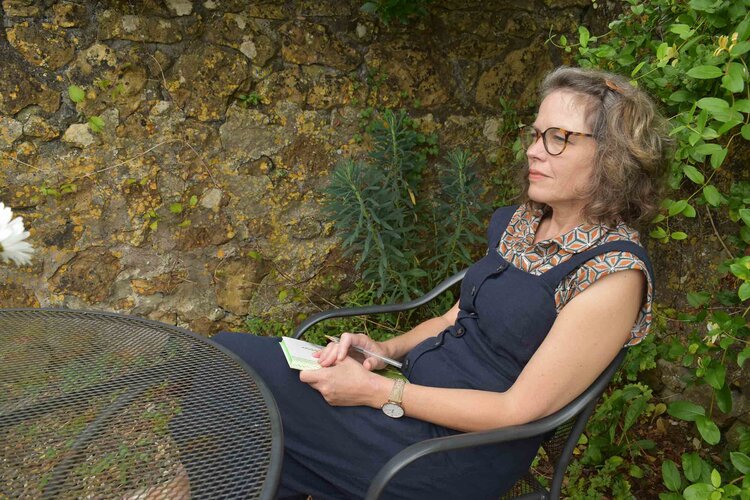
JULIA LEE BARCLAY-MORTON – YOGA, WATER AND REWRITING AUTISM
I interviewed writer Julia Lee Barclay-Morton about her experience of autism. Julia began as an experimental dramatist in New York, moving to the UK to


In part two of her interview, Rachel Godfrey who writes poetry, journals and instructional books for TESOL, answers questions about inner and outer landscapes, creativity and dreams.
Leslie: Can you describe examples of what you call the ‘relationships between our inner and outer landscapes, and the stories to be found there’?
Rachel: John Donne (1624) wrote ‘no man [sic] is an island entire of itself; every man [sic] is a piece of the continent, a part of the main’. The physical landscape in which we all live and move provides metaphors for community and relationship, as Donne shows, and for our daily wellbeing. Most of us, prefer feeling grounded to spacey or at sea; we don’t like feeling we’re on shifting sands, bogged down or swamped with things to do, or that life is an uphill struggle.
By extension, I’m interested in how we can write about the outer landscape – whether that is hills, cliffs, rivers, deserts, or the pavements, squares and shopping centres found in urban landscapes – as a way to explore and map the contours of our thoughts, feelings, habits, beliefs and relationships with others. What would it mean to you, for example, to write about a road you know well, a cave or underground passage, a lake or a thick forest? What might resonate for you there?
Leslie: Could you give examples, please, of what you mean when you say creativity is about ‘drawing something – our thing – out of some pre-existing thing or stuff’.
Rachel: I’m interested in the idea of creativity being an act of transformation, and a bringing out into the light of what is hidden inside so that it can be received, perceived and acknowledged by others. Something is brought out from inside the person who is doing the making (hopes, fears, memory, imagination, impulse, grief, joy … ) and also out of the materials or instruments they use (paper, ink, their body, silk, oboe, leather, marble, voice …).
In this acrostic, I draw something out of myself and out of the word ‘creativity’:
Cutting and sticking at the kitchen table – I
Remember those busy days when the girls were little:
Endless sheets of paper, with drawings
Appearing on them – houses, castles, lions and fairies
Their wings holding them up in the sky.
I want to make like that, not worrying about the
Value of time as work, just being
In the moment
Turning one thing into another, making
Yellow leaves out of silk, pictures out of paper, feelings out of marks
I don’t remember much about my paternal grandfather, but I do know that he could make a fine mouse out of a handkerchief. Even more impressively, potters make vases and other forms out of clay. The handkerchief is easily returned to its original form; not so the painted and fired clay. My experience of Creative Writing for Wellbeing is that experience can be permanently, even if only subtly, transformed by writing into it and making something new out of it. When participants feel comfortable enough to share their writing with others, their work is out of them in a different way – out in the room, heard, received and held in the listeners’ minds.
Leslie: In your experience, how is it possible to use conscious intention and logic to explore the irrational and dream aspects of self? What’s the relationship between these two different approaches to experience?

Rachel: I think the only way to use conscious intention and logic to enquire into hard-to-quantify or ‘irrational’ experiences is by adopting a research methodology that is qualitative (descriptive, as opposed to number-based), phenomenological (first-person / ‘I’-based) and reflexive (in which the researcher acknowledges the assumptions and preconceptions that they inevitably bring to the research). In these person-based approaches, conscious intention and logic have a vital role in forming the research question, selecting appropriate research methods for data collection, identifying ethical concerns, analysing data, presenting the research in a way that is clear and accessible to others, and evaluating the effectiveness of the project.
The word ‘relationship’ in your second question is probably where the answer lies. I know that the conscious / logical / intentional part of myself likes routine, structure, frameworks, categorising, counting and finding patterns, while the irrational / dream / creative part prefers working intuitively, spontaneously and messily. As with all good relationships, if these parts of self spend time together, identify shared goals and values, trust each other and communicate well, then they can collaborate to explore lived (or living) experiences, and a powerful energy arises. I find dialoguing helpful in developing these relationships. A dialogue in my journal between, say, my Curious Child and Precise Poet would, I know, reveal all sorts of tensions and new ideas.
More generally, I’m convinced that central to creative writing as an effective therapeutic practice is a robust relationship between a conscious commitment to show up to the page regularly and a willingness to embrace spontaneity, risk and playfulness when working with words. It’s a field I’m passionate about, and I’m excited about the next steps on my own Writing for Wellbeing journey.
Bibliography
Bolton, G. (2014) The Writer’s Key. London: Jessica Kingsley Publishers Donne, J. (1624) in The Poetry Pharmacy. (2017) ed Sieghart, W. London: Penguin Random House
On Jan 3rd 2022 I interview Paul McGee about Bibliophone, which offers both authors and readers free audiobooks.
ABOUT LESLIE TATE’S BOOKS:

I interviewed writer Julia Lee Barclay-Morton about her experience of autism. Julia began as an experimental dramatist in New York, moving to the UK to

I interviewed Gillean McDougall from Glasgow, who edited the collaborative projects Honest Error (on Charles Rennie Mackintosh and his wife Margaret Macdonald) and Writing the

I interviewed French writer Delphine de Vigan, whose book, No et moi, won the prestigious Prix des libraires. Other books of hers have won a clutch

I interviewed Joanne Limburg whose poetry collection Feminismo was shortlisted for the Forward Prize for Best First Collection; another collection, Paraphernalia, was a Poetry Book Society Recommendation. Joanne

I interviewed Katherine Magnoli about The Adventures of KatGirl, her book about a wheelchair heroine, and Katherine’s journey from low self-esteem into authorial/radio success and
| Cookie | Duration | Description |
|---|---|---|
| cookielawinfo-checkbox-analytics | 11 months | This cookie is set by GDPR Cookie Consent plugin. The cookie is used to store the user consent for the cookies in the category "Analytics". |
| cookielawinfo-checkbox-functional | 11 months | The cookie is set by GDPR cookie consent to record the user consent for the cookies in the category "Functional". |
| cookielawinfo-checkbox-necessary | 11 months | This cookie is set by GDPR Cookie Consent plugin. The cookies is used to store the user consent for the cookies in the category "Necessary". |
| cookielawinfo-checkbox-others | 11 months | This cookie is set by GDPR Cookie Consent plugin. The cookie is used to store the user consent for the cookies in the category "Other. |
| cookielawinfo-checkbox-performance | 11 months | This cookie is set by GDPR Cookie Consent plugin. The cookie is used to store the user consent for the cookies in the category "Performance". |
| viewed_cookie_policy | 11 months | The cookie is set by the GDPR Cookie Consent plugin and is used to store whether or not user has consented to the use of cookies. It does not store any personal data. |